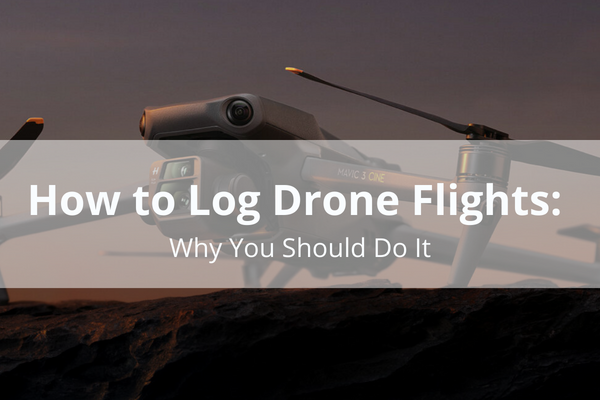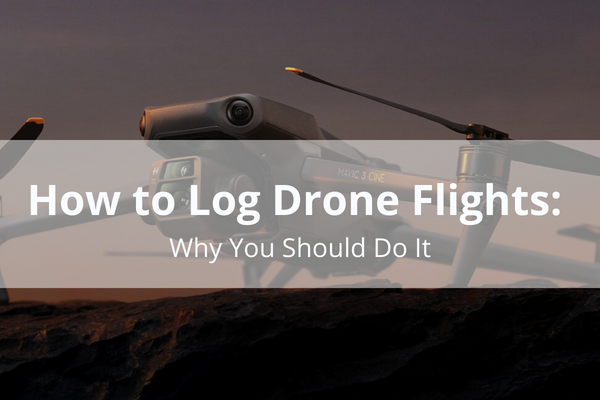How to Log Drone Flights—Why You Should Do It

When it comes to drone ownership, most people are aware of the proper registration procedure and maintenance but many casual enthusiasts are unfamiliar with the process of drone flight logs.
Read on below to learn all about the basics of drone flight logs and the advantages they can provide to pilots.

Are you a commercial drone pilot or do you work with an enterprise drone program?
You might be familiar with the value of keeping detailed drone flight logs, but for those who haven’t used the feature before, drone flight logs can be a crucial component of commercial pilot operations.
Even if you are just a hobbyist flying in your spare time, these flight logs can be an extremely valuable asset to have at your disposal whenever a maintenance issue arises.
Before we get too ahead of ourselves, let's go over what makes up a drone flight log in the first place.
What is a Drone Flight Log?
A flight log is a detailed report of everything that occurred during an individual flight and contains enough information to recreate the specific flight at another time.
Flight operations software can take care of logging most of the information such as date, time, GPS location, highest altitude, and other minute details.
Other important things that cannot be captured by the software and should be logged alongside the collected data include:
-
-
-
notes that describe the purpose/objective of the flight
-
specific occurrences that happened during the flight
-
other people involved
-
weather conditions
-
additional equipment
-
any other number of items that would be missed through software
-
-
The FAA doesn’t require pilots to keep flight logs, but it’s highly recommended, as the logs can be necessary to review for situations of legal compliance, specific waivers, and even insurance claims.
Advantages of Keeping a Log
-
Recordkeeping can help pilots track performance changes. These records are great for maintenance as they can help quickly diagnose any faults in the aircraft. The records can take out the guesswork from the repair process and can ensure that your drone is fixed properly.
-
Those who have logs available are also able to share them easily when submitting to FAA for specific flight permissions, submitting to DJI or other drone manufacturers for care, and even drone job requirements can request to review your logs to track experience.
Who Needs to Log?
There is no official/legal need for any pilot to keep fully detailed flight logs.
UAS laws and regulations are subject to change, even at a local ordinance level. Not having the logs can also cause simple issues to become much more complex when dealing with any legal body, insurance company, or maintenance/repair facility.
For more guidance, tips, tricks, and drone recommendations, check out our blog.
Have questions on which drone is right for you? Connect with our experts.
